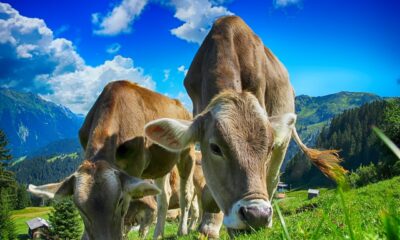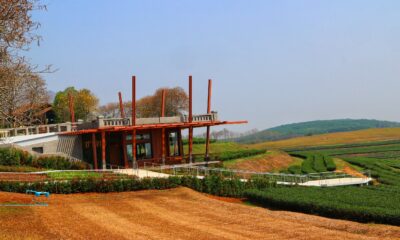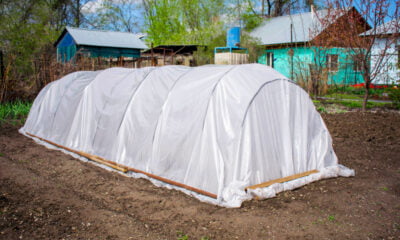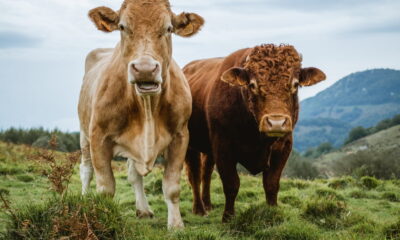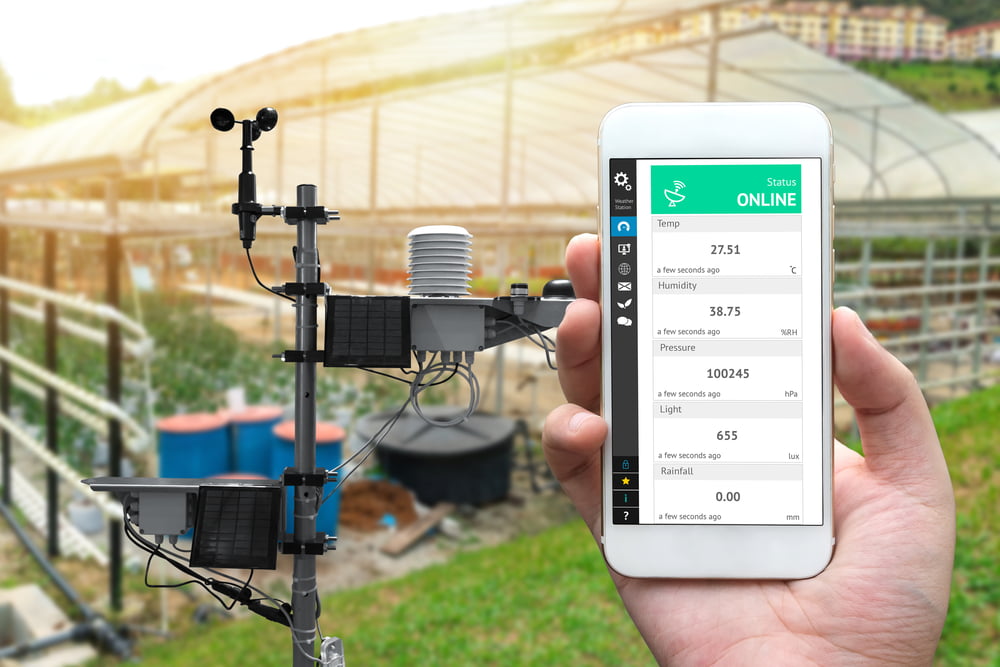
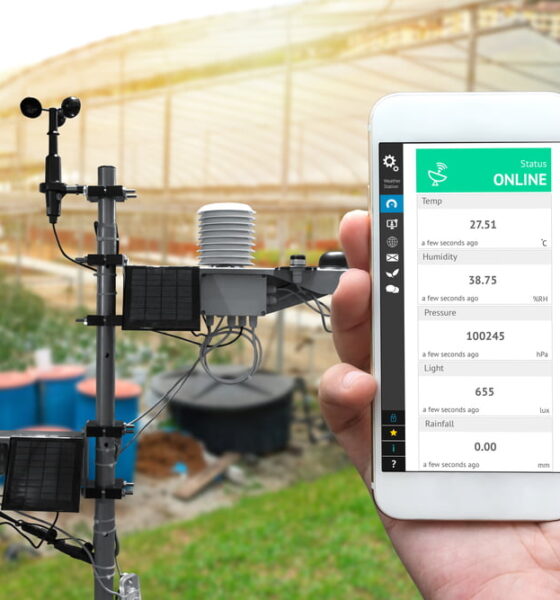
Environment
The Agricultural Benefits of Weather Stations for Eco-Friendly Farmers
Sustainable agriculture is more important than ever. It provides a number of great benefits for farmers. However, the benefits for the environment can be at least as important.
There are a lot of problems associated with climate change. It is threatening food security and could make the human population unsustainable by 2100 as changing weather patterns cause food shortages. Fortunately, the United Nations says this is a fight we can win. We just have to take the right steps.
One strategy is to use weather stations when farming. This can help farmers maximize food production with the same amount of resources. This is both better for their wallet and lowers the carbon footprint of food production. This is important since the agricultural sector accounts for around 10% of all U.S. greenhouse gas emissions.
Following Weather Patterns is Crucial for Eco-Friendly Farmers
Weather is something we all care about. It can influence how and where we live, what we wear, and what we eat, among other things. However, for farmers in Australia, the weather holds far more significance than you think and influences every major business decision regarding water usage, labor, and crop health. Since climatic factors affect nearly 50% of crop yield, setting up proper weather conditions has become an essential requirement for most modern farmers in the country. Check your local weather often such as this one for Nashville weather.
This is where weather stations come in to help farmers adapt to drought, flood, hail, cyclones, and heatwaves, among other forms of severe weather. While there’s no way to fight the weather, using weather monitoring instruments to measure real-time weather conditions and data can help farmers make strategic decisions that can either maximize production or minimize losses.
In this post, we’ll share the main agricultural benefits of weather stations for farming so you can decide if these innovative environmental monitoring products are worth the investment.
The Importance of Weather Forecast for Farmers
To understand the agricultural benefits of weather stations, you need to understand the importance of the weather forecast for farmers. Weather plays a crucial role in commercial and domestic farming, and just one miscalculation can result in crop failure. With labor, seeds, water, and other overhead costs at their highest these days, you have very little margin for error. Weather stations won’t stop a cyclone or heat wave, but they’ll arm you with hyperlocal weather data which you can use to make proactive sowing, irrigation, and harvest decisions. In addition to using new technology for sustainable farmers, weather forecasting can help farmers lower their carbon footprints.
The Main Benefits of Weather Stations for Farming
Weather stations for farming do more than tell you how hot or cold it is outside. They’re specially designed to offer more valuable insights to farmers through real-time data monitoring. Here are the two main benefits this technology offers:
1. Several data Types to measure
Weather conditions greatly impact crop growth. For instance, many crops require high temperatures and humidity while others thrive in cold and dry environments. Many farmers also use temperature, humidity, and other factors to predict pest infestations and diseases so they can proactively plan sowing, harvesting, and protection accordingly. Here are the main data types weather stations provide:
- Temperature
You can accurately track temperature changes over a day, week, season, or year with a weather station based on your location.
- Rainfall
Thanks to built-in pulsers, you can measure how much rain has fallen over a specified period and use rain forecasts to store and manage water.
- Wind Speed and Direction
Weather stations help urban farmers in Australia predict cyclones, floods, and strong winds more accurately than meteorological departments.
- Humidity
Humidity is one of the most important factors affecting crop growth and indicates upcoming weather, mould and bacteria growth, and pest infestations.
- Soil Moisture
Soil moisture monitoring is an additional feature found mainly in weather stations for farming and can help farmers plan irrigation accordingly.
With this accurate data, farmers can better see and forecast upcoming precipitation, drought, and temperatures, and prepare their crops for turbulent conditions accordingly. For instance, soil moisture sensors to measure water content, temperature, and pH can help farmers predict the right time for sowing a crop, especially in rainfed areas. Knowing the right amount of water to apply can differentiate between sustained crop growth and irreversible loss.
2. Save and Efficiently Manage Resources
Farming is the world’s most important industry as it provides the population with food which is essential for life sustenance. However, farming resources are limited, meaning farmers have to use them efficiently to achieve healthy crops and increase profitability. Weather stations provide farmers with the data they could use to improve efficiency and productivity by efficiently managing resources. For instance, knowing the exact amount of rainfall can help them save water resources, especially in dry rural areas. Moreover, viewing soil water levels, wind speeds, and weather conditions remotely saves energy, time, and labour – all of which could be used in other core activities. Lastly, automatic monitoring and real-time data collection can allow farmers to make better decisions in several aspects of farming, such as seeding, irrigation, pesticides, and harvesting.
Final Thoughts
The farming industry is transforming rapidly due to the influx of technology and innovative solutions, and farmers who are getting on board the change wagon are quickly reaping the benefits. A weather station should appeal to any farmer who understands the important relationship between the weather and farming. Weather monitoring instruments offer precise measurements of environmental conditions, and therefore, they offer more work precision which can increase yield, productivity, and profitability. As a result, you don’t have to rely on TV, radio, or outdated weather apps on your smartphone to get the information you need to make decisions.


 Environment12 months ago
Environment12 months agoAre Polymer Banknotes: an Eco-Friendly Trend or a Groundswell?

 Features11 months ago
Features11 months agoEco-Friendly Cryptocurrencies: Sustainable Investment Choices

 Features12 months ago
Features12 months agoEco-Friendly Crypto Traders Must Find the Right Exchange

 Energy11 months ago
Energy11 months agoThe Growing Role of Solar Panels in Ireland’s Energy Future
